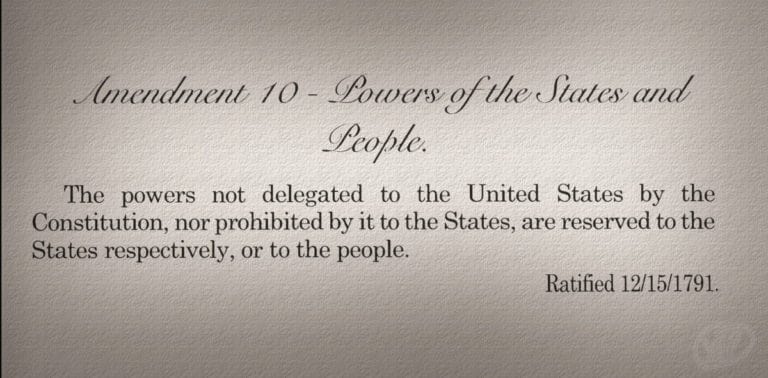Big government is bad is a bad myth because it is a logical fallacy, specifically a red herring logical fallacy–a distraction. This distraction distracts from the good governmental mechanism of America as established by our Founding Fathers in the Constitution. The “extra” big checks and balances are the contribution America has given humanity that works well against autocracies and dictators.
The myth is that our Founding Fathers wanted a small weak Federal Government. That’s not entirely true, they wanted a mechanism that empowered the states so they could give power to and take power from the Federal Government whenever they wanted to. That is one of the core features of our representative democracy and part of our checks and balances. The various checks and balances in our Constitution and in law as established by our government is what makes America great and unique in the world.
That mechanism started with Article 2 of “The Articles of the Confederation”, our first constitution:
“Article 2. Each state retains its sovereignty, freedom, and independence, and every Power, Jurisdiction, and right, which is not by this confederation expressly delegated to the United States, in Congress assembled.” –1777
Article 2 above in our first constitution evolved into:
- the Supremacy Clause of Article 4, Clause 2 of the U.S. Constitution,
- the Supremacy Clause is also why the Nullification legal theory is invalid,
- the 10th Amendment of the Constitution which clearly says the same thing.
10th Amendment:
“The powers not delegated to the United States by the Constitution, nor prohibited by it to the States, are reserved to the States respectively, or to the people.”
This law was held up in the Supreme Court case of McCulloch v. Maryland (1819). The intent is clear. Congress, which represents the states, can pass any constitutional federal law they wish including laws that give to or take away from the powers of the Federal Government.
The Congress is the mechanism to delegate a power to, or take a power from, the Federal Government. This majority rule seems fair since the Congress is made up of state representatives. The Founding Fathers gave us checks and balances but we are free to determine our own destiny so long as it is constitutional.
Let’s explore…
State Rights
Article 2 of the The Articles of Confederation, our first constitution, and the 10th amendment gives all rights that are constitutional and that Congress has not specified to the states. This means, if a law at the Federal or state level is unconstitutional, it is voided. This also means that constitutional Federal laws override state laws.
The bottom line is the following:
- Congress can create any Federal law so long as it’s constitutional.
- States can create any law so long as it is constitutional and does not conflict with a federal law.
Sometimes abusers of the constitution try to claim that states rights each state can do whatever it wants whenever it wants. That’s just a miss-reading of the constitution and bad logic. A more accurate version of that is:
if it’s not in the constitution, it belongs to the states unless the states have given it to the Federal government.
The power of our government is not states rights, it’s checks and balances, and states rights is a part of our checks and balances. Focusing on states rights as an excuse to not discuss an issue is a distraction and prevents us from forming a more perfect union.















